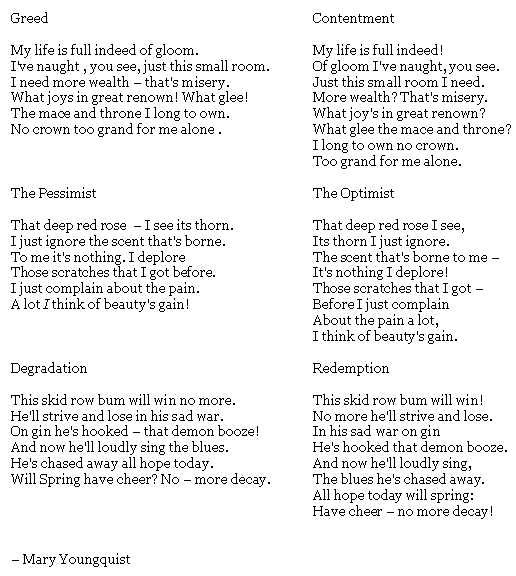
Limericks
A lady who deftly crocheted,
A terrible temper displeted,
On finding when through
That a dropped stitch or twough
Had spoiled the contrivance she’d meted.
A newspaper man on the Isthmus
Said, “Colonel, now what about thisthmus?”
The Colonel said, “Write
That it looks like a fite,
But I think ’twill be over by Christhmus.”
Once a Frenchman who’d promptly said “Oui”
To some ladies who’d ask him if houi
Cared to drink, threw a fit
Upon finding that it
Was a tipple no stronger than toui.
Young Brewster wed Adeline Worcester,
But nobody knew what indorcester
In writing her name
To spell it the same
And make it read Adeline Brorcester.
There was a young man from Mont.
Who slipped on a peel of ban.
He fell on his head,
And what he then said
Was quite the reverse of “Hos.”
Punctuation’s abhorrent to Thos.,
And he loathes semicolons and cos.
He is such a bad boy
That a wave of great joy
Would arise were the kid taken fros.
— Stanton Vaughn, ed., Limerick Lyrics, 1904
Ghost Story
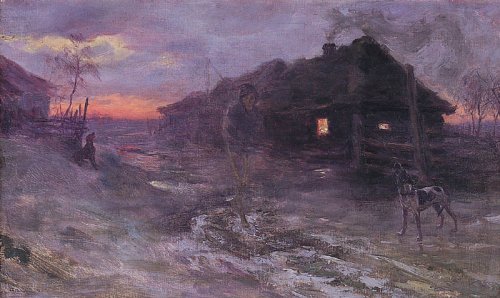
In September 1749, Arthur Davis, a sergeant in the British army, went missing while shooting in the Highlands of Scotland. A search found no trace of him, but at length his landlord’s son, Alexander Macpherson, announced that Davis’ ghost had roused him from bed, told him the location of the body, asked him to bury it, and named his murderers.
At trial, this astounding testimony was corroborated by a servant who had seen the ghost enter Macpherson’s house and approach his bed:
She saw something naked come in at the door; which frighted her so much that she drew the clothes over her head: that when it appeared, it came in a bowing posture; that she cannot tell what it was; that next morning she asked Macpherson what it was that had troubled them the night before? and that he answered, she might be easy, for it would not trouble her any more.
This ghostly evidence seemed to be swaying the jury until the defense attorney asked a fateful question: “What language did the ghost speak in?” When the youth answered, “As good Gaelic as I ever heard in Lochaber,” the jury found the accused murderers not guilty. A ghost’s testimony might be reasonable — but Arthur Davis had never learned Gaelic.
“Spaghettibird Headdress”
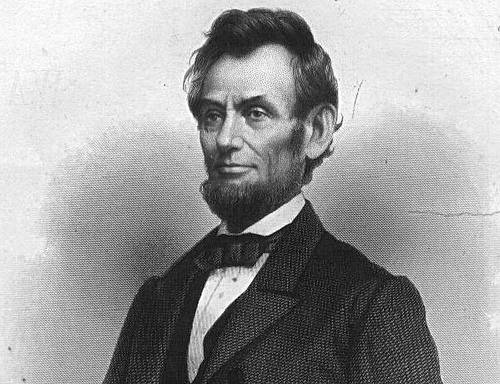
Fors oar in shaving ear she goes, awful fodders broad fart hunter dish consonant hay noon action, corn sieved inebriety and addict hated tutor preposition dot omen or crated inkwell.
Non wiring caged integrate cymbal wart, tasting wither damnation, our runny gnashing, socking seed end sod defecated ken logging door. Worm head honor grape batter veal doff fat whore. Wave counter defecator potion audit felled azure vinyl roasting piece fort hose hoe hair gater wives tit tat gnashing mike leaf. Assault her gutter footing in pepper dot weigh shoe duties.
Budding awl archer since, weaken opt defecate, weekend not concentrate, working ought hello disk round. Depravement, livid indeed, hue straggle deer, heft cancer traded hit, pharaoh buff harp burp hours tatter distract. Twirled wheel ladle node orlon ram umber wad wheeze hay year, buttock an if veer fork add catered hairdo done finest walk witch day hoof otter heft dust floor show nobody at fenced. I doze rudder forest tubing hair debtor catered tuba grape tusk rim onion beef harass — dot form tease own whored did, wheat aching greased dim notion tutor cows far wish dig rave do lustful miss shore add dive ocean; dewy her holly dissolve daddies dad shell nut heft tiding feign; end it grubby men, other pimple, brother pimple, father pimple, shell nut pair rich fern dirt.
— “Labour Ham Winking” (Jim Anderson, Jeffrey Brown, and John Spencer), quoted in Willard R. Espy, The Best of an Almanac of Words at Play, 1999
Death Mundane
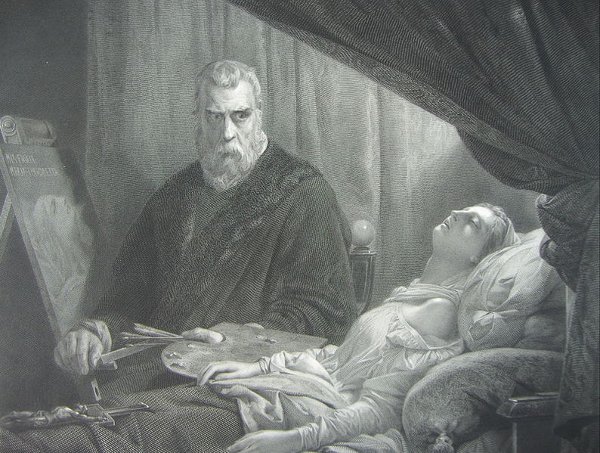
Uninspired last words:
- “Peter, take good care of my horse.” — Winfield Scott
- “Have you brought the checkbook, Alfred?” — Samuel Butler
- “Take away those pillows — I shall need them no more.” — Lewis Carroll
- “You heard me, Mike.” — John Barrymore
- “I haven’t drunk champagne for a long time.” — Chekhov
- “I can’t sleep.” — James M. Barrie
- “Moose. Indian.” — Thoreau
- “I’ve never felt better.” — Douglas Fairbanks
- “The nourishment is palatable.” — Millard Fillmore
Told jokingly that he had drunk a dose of ink by mistake, Sydney Smith said, “Then bring me all the blotting paper there is in the house.”
Math Notes
By Royal V. Heath:
12 + 43 + 65 + 78 = 87 + 56 + 34 + 21
That’s not terrifically impressive on its face. But:
- Each side uses the digits 1-8.
- The whole equation is a palindrome.
- It remains valid if you square each term.
Teamwork
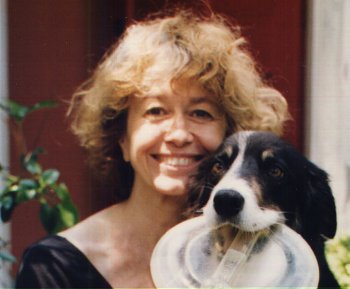
At the start of her career, NIH immunologist Polly Matzinger disliked writing in the passive voice and felt too insecure to adopt the first person. So she listed her dog, Galadriel Mirkwood, as a coauthor and wrote as “we.”
Their paper was published in 1978 in the Journal of Experimental Medicine. When the editor learned Galadriel’s species, he barred Matzinger from his pages for the rest of his life.
Antique Spam
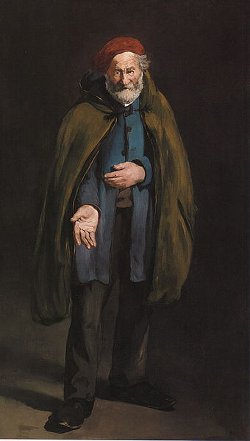
In July 1833 the Earl of Stamford and Harrington received a letter signed “Martha Turner.” “It is with shame, indescribable shame, I presume to address your Lordship with these lines,” she wrote, “but from having a knowledge of your Lordship’s person from my infancy, and through the report of your Lordship’s sympathising and benevolent character, I am about entrusting a most unfortunate affair to your Lordship’s honour and secrecy.”
She had left her widowed mother at Christmas, she said, with a man who had promised to marry her but had left her “ruined and undone.” She begged for “a small pecuniary assistance,” pleading with the earl to rescue her “from entire destruction” and “a miserable death.”
Martha Turner didn’t exist. Her appeal was contrived and arranged by Joseph Underwood, one of about 250 letter-writing impostors who plagued England’s wealthy in the 1830s. Underwood had invented and written Martha’s letter in a woman’s hand, and he forged corroborating messages from her supposed seducer and from a clergyman supporting her story.
Underwood earned nearly £1,000 a year at this, which apparently made his frequent incarcerations worthwhile. “If the faculty of creation be one of the principal attributes of genius,” wrote John Grant in 1838, “Underwood was a genius of the first magnitude. The force and felicity of his imaginative facts were remarkable. Had he turned his attention to novel-writing, instead of to the profession of a begging-letter impostor, there is no saying how high his name might at this moment have stood in the current literature of the country.” Underwood chose otherwise — he died in Coldbath Fields Prison in 1838.
Sibling Rivalry
Do men have more sisters than women do? Intuitively it seems they must. In a family with two children, a boy and a girl, the boy has a sister but the girl doesn’t. In a family with four children, two boys and two girls, each boy has two sisters but each girl has one. It seems inevitable that, on average, men must have more sisters than women.
But it isn’t true. There are four possible two-child families, all equally likely: BB, BG, GB, GG. Half of the children in these families have a sibling of the same sex, and half have a sibling of the opposite sex. This observation can be extended to larger families. So men have the same number of sisters as women.
Cut the Knot has a good discussion of the statistics, including a javascript simulator.
The Right Moment
The second Earl of Leicester sat in Parliament for 67 years without saying a word.
His son, the third earl, was silent for 32 years.
His grandson, the fourth earl, said nothing for 23 years.
His great-grandson, the fifth earl, Thomas William Edward Coke, kept his silence for 22 years, then in 1972 rose and said, “I hope we shall use safer chemicals in place of those which have devastated the countryside.”
“My record of silence is not all that remarkable because I know that my family have not been overtalkative in this house,” he said later.
